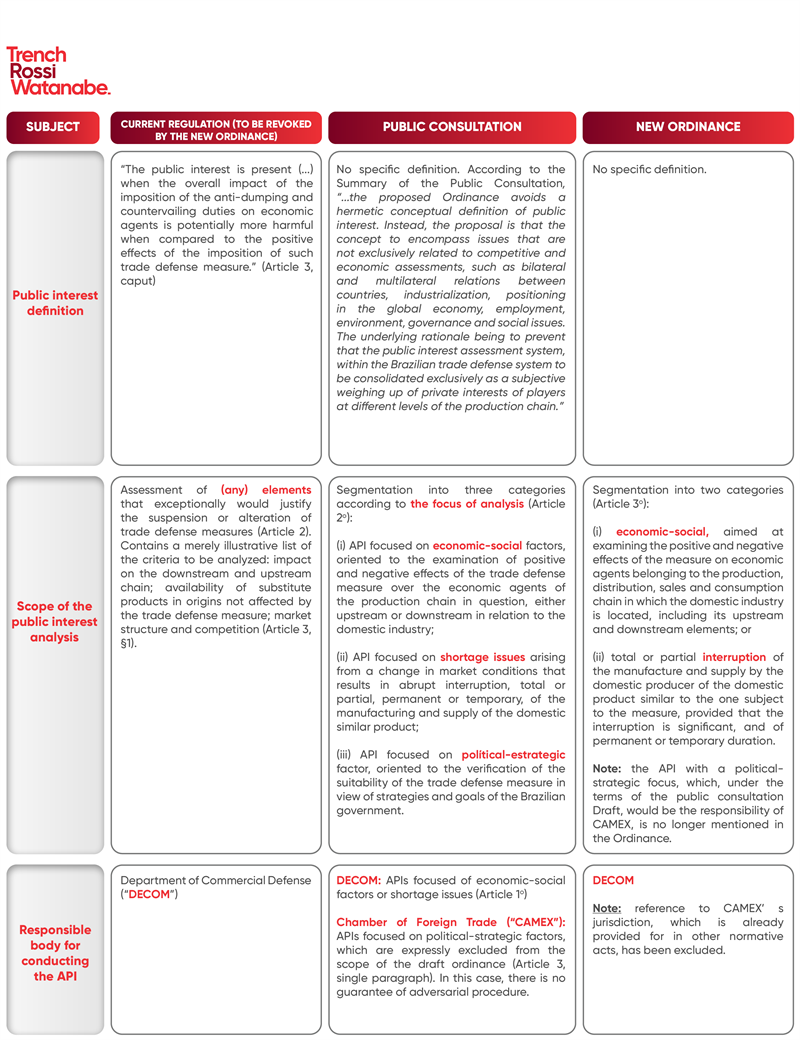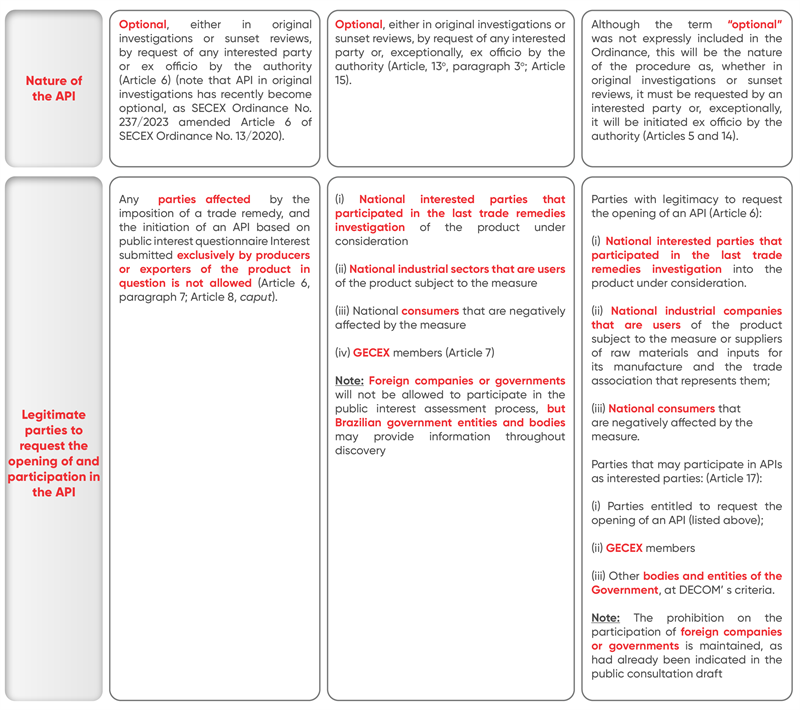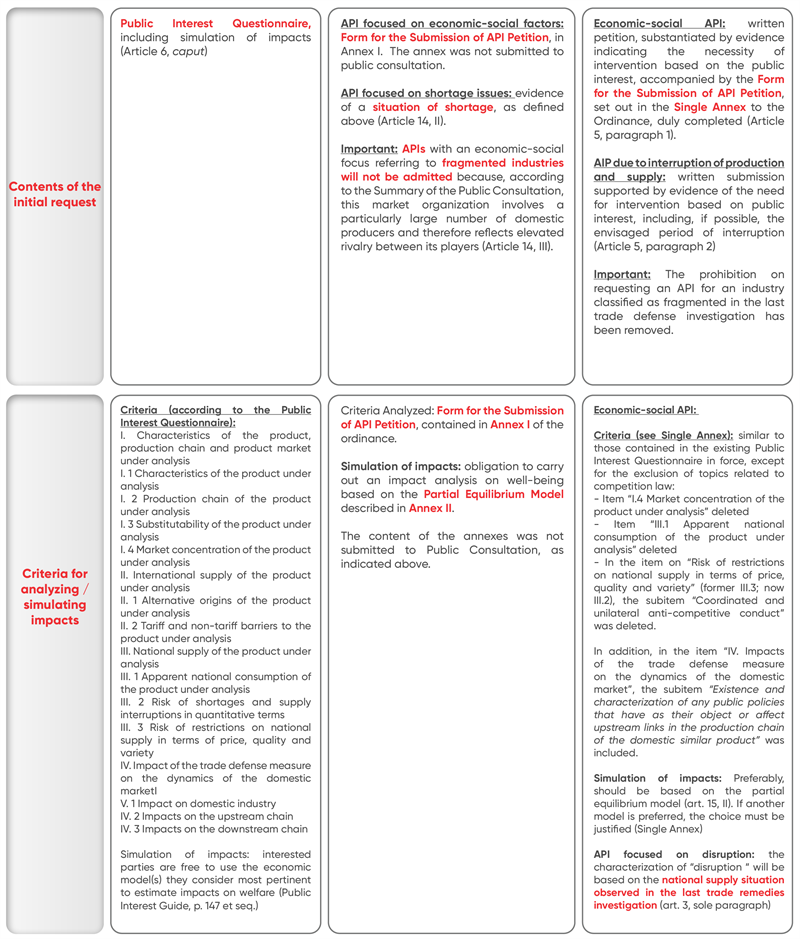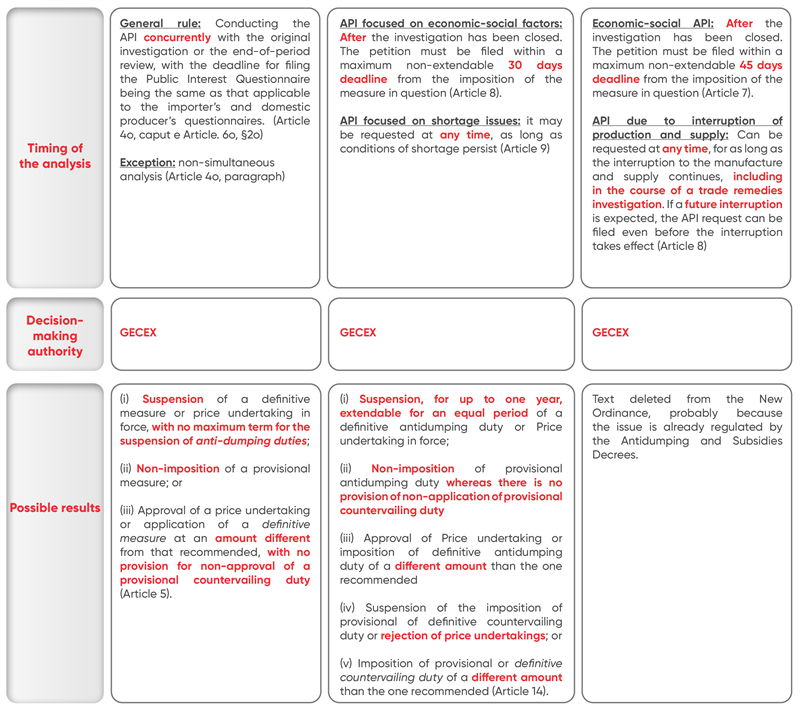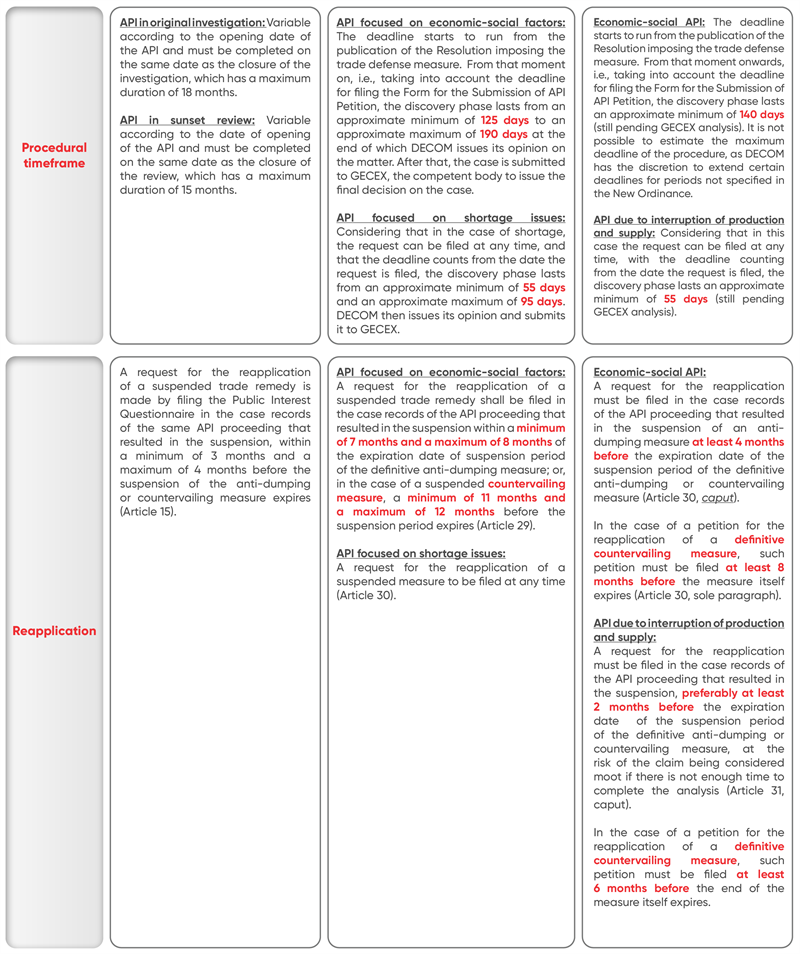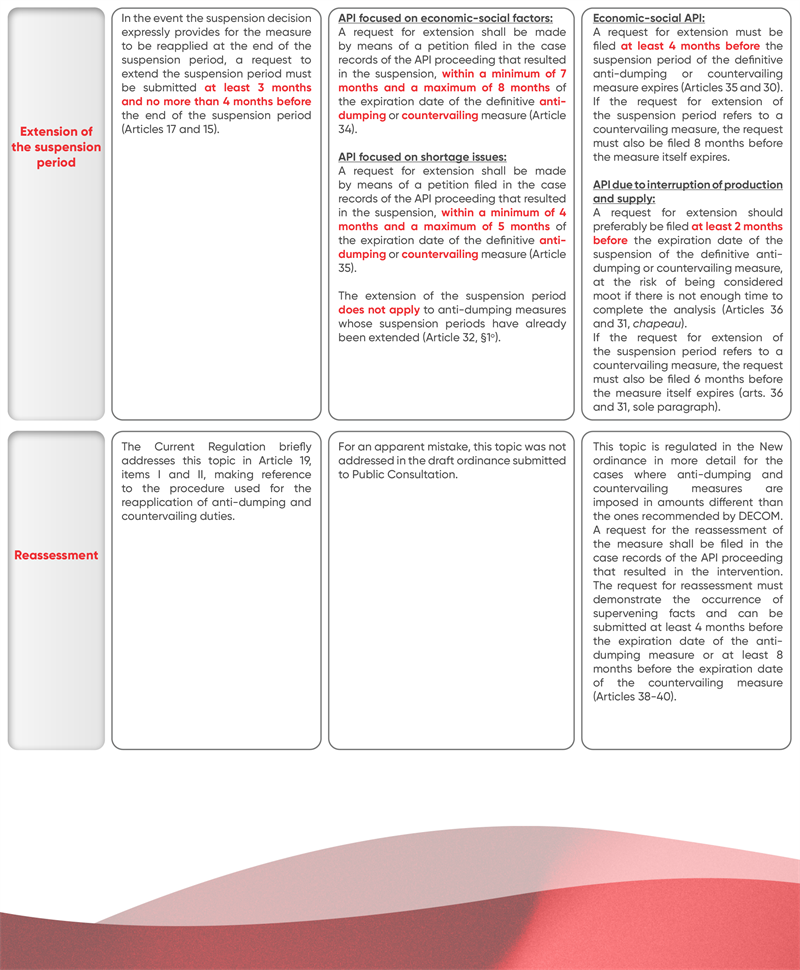New Public Interest Assessment proceedings for trade defense measures to come into force in 2024
In brief
On November 17, 2023, SECEX published Ordinance No. 282/2023 (link), establishing a new regulation concerning the assessment of public interest (“API“) conducted by the Department of Trade Remedies – DECOM (“New Ordinance“) in the context of trade remedies investigations.
The New Ordinance will come into force on January 1, 2024, and fully revoke SECEX Ordinance No. 13/2020 and SECEX Ordinance No. 237/2023, significantly changing the existing API procedure in Brazil.
In further detail
The Brazilian Antidumping and Subsidies Decrees (Decrees No. 8.058/2013 and No. 10.839/2021) authorize, in exceptional circumstances, the suspension or modification of definitive antidumping and countervailing measures and the non-imposition of provisional measures based on reasons of “public interest”.
Currently, the API proceeding is regulated by the SECEX Ordinance No. 13/2020, as amended by the SECEX Ordinance No. 237/2023 (the “Current Regulation“), both of which will be fully revoked by the New Ordinance as of its entry into force on January 1, 2024.
According to the Ministry of Development, Industry and Foreign Trade (“MDIC“), the purpose of the New Ordinance is to “ensure a better allocation of public resources within the Brazilian trade defense system and reduce the burden of participation in trade defense and public interest proceedings”*.
As reported in a previous Legal Alert (link), the implementation of the New Ordinance was preceded by a public consultation, which remained open from April 17 to June 15, 2023. During this period, 32 respondents submitted their contributions.
The main changes introduced by the New Ordinance are highlighted below:
- The API will be undertaken after the trade remedies investigation is concluded: APIs will no longer be concomitant with trade remedies investigations; it will take place after the issuance of a decision within the trade remedies investigation. This is a significant paradigm shift. According to the MDIC, the change aims to simplify the API procedure, reducing its burden both for the government and the private sector.
- Types of APIs: unlike the existing proceeding, in which there is no limitation on the scope of the API, the New Ordinance provides for only two types of API to be conducted by DECOM:
- Economic-social: aimed at evaluating the impacts of anti-dumping and countervailing measures on agents downstream and upstream of the supply chains affected by the trade defense measure.
- Interruption (total or partial) of national production: the purpose of the proceeding is to suspend the measures in the event of a significant interruption (even if partial) of national production of the product covered by the trade defense measure.
The New Ordinance, unlike the draft submitted to public consultation, does not mention the hypothesis of API focused on political-strategic factors, which would be exclusively under the purview of the Chamber of Foreign Trade (“CAMEX“).
- Non-extendable deadline of 45 days to request an economic-social API, counted as the date of the publication of the GECEX Resolution that imposed, extended or modified the trade remedy. The request for an API based on the interruption of national production can be filed at any time.
- More efficiency: API procedures currently take approximately 12 months to be concluded. Under the New Ordinance, the procedure may be concluded within 55 to 140 days (without accounting for the time of the analysis by CAMEX Executive Management Committee – “GECEX“), depending on the API type.
- Interested parties: Only the following are considered interested parties to request an API: (i) domestic parties that participated in the last trade defense investigation concerning the product; (ii) domestic industrial companies of the product or suppliers of raw materials affected and the trade association that represents them; and (iii) domestic users of the product that are adversely affected by the measure. Foreign parties will not be allowed to participate.
- Procedures following modification and/or suspension due to public interest: the New Ordinance establishes three categories of requests to be submitted following the suspension or amendment of an anti-dumping or countervailing measure due to public interest:
- Request for re-imposition: Applicable to situations in which the act of suspension does not establish the automatic re-imposition of the definitive anti-dumping or countervailing measure at the end of the suspension period.
- Extension of the suspension period: Applicable in cases where the act of suspension expressly establishes the re-imposition of the definitive anti-dumping or countervailing measure at the end of the suspension period.
- Reassessment: Applicable in cases in which the anti-dumping measure, countervailing duty or price commitment was applied in an amount different from the one recommended by DECOM at the end of the trade remedy investigation. This modality had not been foreseen in the draft ordinance submitted to public consultation. The Current Regulation briefly addresses this topic, making reference to the procedure used for the reapplication of anti-dumping and countervailing measures. The topic was dealt with in detail in the New Ordinance, which requires supervening facts to subsidize for such claims.
In all three cases, the request must be submitted 4 months before the end of the term of anti-dumping measures and 8 months before the final term of countervailing measures.
- New Form for the Submission of an API Petition (without some antitrust aspects): As detailed in the table below, the public interest questionnaire (“Questionnaire“) that is currently used in APIs requires a series of information relating to the product that is the object of the trade defense measure and the downstream and upstream links in the production chain for the assessment of the impacts the trade remedy. The Questionnaire will be replaced by the Form for the Submission of API Petition contained in the Single Annex to the New Ordinance. It should be noted that the introductory text to the public consultation stated that the aforementioned form would be subject to a new consultation**, that never occurred. Although very similar to the Questionnaire, the new form no longer covers some topics related to competition law, which were previously part of the scope of the API, such as market concentration and anti-competitive conduct.
- Entry into force. The New Ordinance enters into force on January 1, 2024; any proceedings initiated on the basis of Questionnaires submitted before this date will be governed by the Current Regulation.
Comparative table
Below is a comparative table of the main aspects of the Current Regulation (SECEX Ordinance No. 13/2020, amended by SECEX Ordinance No. 237/2023), the draft submitted to Public Consultation (made available by SECEX in the Public Consultation launched by Circular No. 12, published on April, 10, 2023), and the New Ordinance (SECEX Ordinance No. 282, of November 16, 2023):
